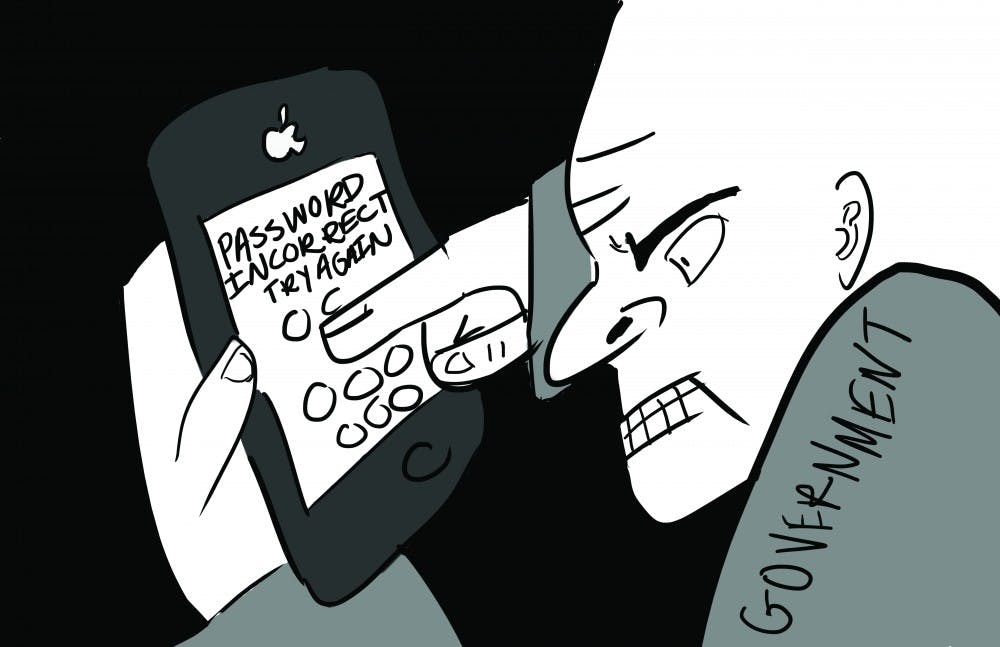Apple CEO Tim Cook started a debate about privacy versus safety when he released an open letter stating that Apple was refusing to create a “backdoor” into iOS 9 for the FBI.
The Editorial Board agrees with Cook that this would set a dangerous precedent, and goes beyond the reach of the All Writs Act of 1789, which is the Writ that the order was issued.
The FBI is in possession of the iPhone belonging to San Bernardino shooter Syed Farook. The FBI has been unable to bypass Farook’s password, and has come to Apple asking them to build the technology to break into iOS 9.
Essentially, the FBI is asking for Apple to create a system that not only removes the safeguards that prevent multiple incorrect passwords from being used, but also a system that enters multiple passcode combinations, so agents don’t have to type them in by hand .
Cook’s open letter says this technology does not yet exist, and would be “too dangerous to create.”
The FBI said Apple could create this system so it only worked on Farook’s iPhone. Cook, who probably knows more about the limits of his own engineers and technology as a whole, said that this would be impossible.
Because the iOS is the same on every iPhone, you would not be able to create a program that handicaps its security features that wouldn’t work on every phone using that iOS.
Both Apple and the FBI agree that Apple has complied with all court orders regarding the San Bernardino case. They have turned over Farook’s most recent iCloud backup, which would presumably have most of the information from the iPhone anyways.
Apple has also made their top engineers available to advise the FBI. Short of doing the impossible, Apple has complied with the government and the court. So this debate is not about what Apple needs to do to assist in the capture and detainment of terrorists, they have already done everything.
What this debate is about is if the government should ask Apple to go even further. The judge issued this order under the AWA. This act says that federal courts can issue orders that are “appropriate” to their jurisdictions, and “agreeable” to the law. It must also not be an “undue burden.”
It is not appropriate or agreeable to the law to ask an outside entity to perform a task they have said is impossible.
Apple’s only course of action to comply with this order would be to create a system that would be able to break into any phone using iOS 9. Once this technology exists, Apple fears that it could be duplicated and used to harm all Apple users, not just terrorists.
Considering the sensitive information that people keep on their phones, from their calendars to their banking information, it isn’t hard to picture the harm that could result from this technology.
We share Apple’s fear. It isn’t irrational and it isn’t immoral. It is a response to a world that makes true privacy almost unattainable.
The FBI said in a motion filed Friday that Apple is only taking a stance against this order “based on its concern for its business model and public brand marketing strategy.”
Maybe this is true. But if Apple’s marketing strategy is in line with the basic rights to privacy for Apple users everywhere, then we stand behind them.
Apple, as a business, is accountable to its customers, and we want to keep the backdoor locked.




